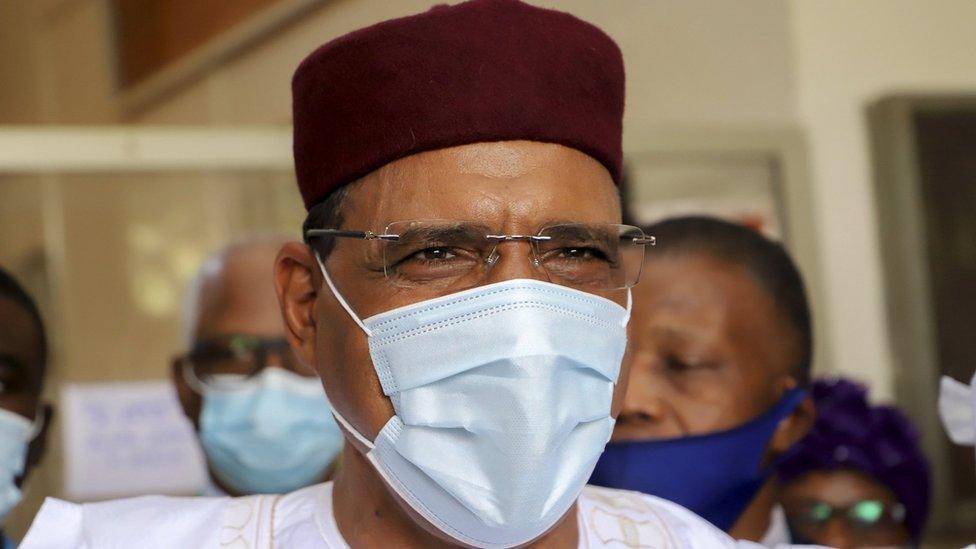Niger election: Mohamed Bazoum wins landmark vote amid protests
- Published

A former interior minister, Mohamed Bazoum, has won Niger's presidential election, which has been hailed as a first democratic transition for the coup-prone West African state.
He took 55.75% of the vote, said the electoral commission, with opposition candidate Mahamane Ousmane on 44.25%.
Supporters of Mr Ousmane, a former president, have protested in the streets, alleging fraud.
Niger struggles with frequent droughts, insurgency and widespread poverty.
The world's poorest nation according to the UN's development rankings for 189 countries, it outlawed slavery as late as 2003.
It has been affected by a spillover of violence from two jihadist insurgencies in neighbouring Mali and Nigeria.
Mr Bazoum, 61, was the candidate for the governing party in Sunday's second-round run-off vote. He is set to succeed President Mahamdou Issoufou, who is stepping down after two five-year terms.
However, supporters of the defeated Mr Ousmane have gathered in areas seen as his strongholds in the capital, Niamey.
The “óĻó“«Ć½'s Lalla Sy, in neighbouring Ivory Coast, reports that tyres are being burned and stones have been thrown at a vehicle belonging to the governing party.
Mr Ousmane, 71, was the first democratically elected president of Niger in 1993 but was overthrown in a military coup three years later.
The provisional results must still be confirmed by the constitutional court.
More about Niger
The Republic of Niger
Capital: Niamey
-
Population 16.6 million
-
Area 1.27 million sq km (489,000 sq miles)
-
Major languages French (official), Hausa, Songhai, Arabic
-
Major religions Islam, indigenous beliefs
-
Life expectancy 55 years (men), 56 years (women)
-
Currency CFA (Communaute Financiere Africaine) franc
- Published4 August 2023